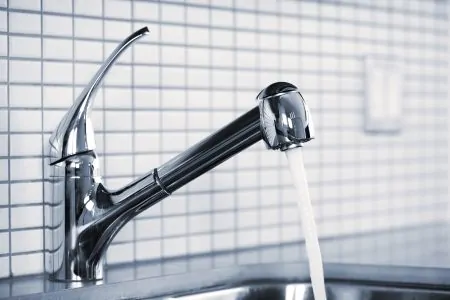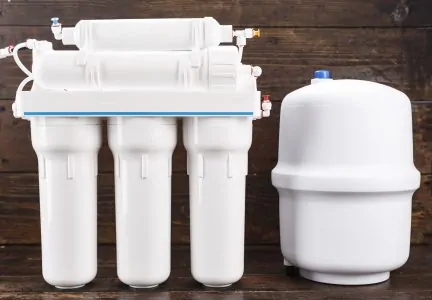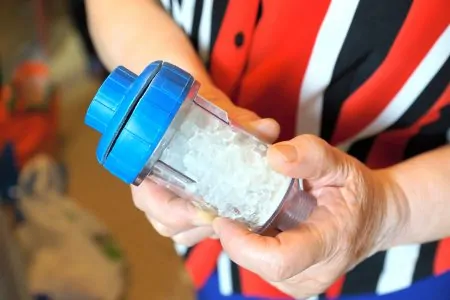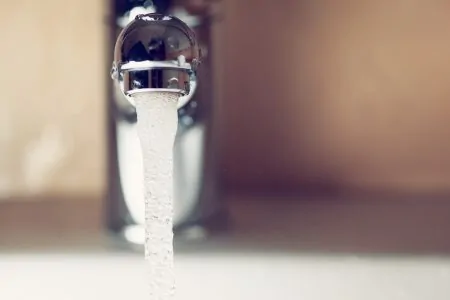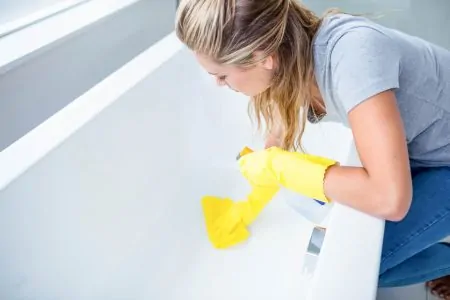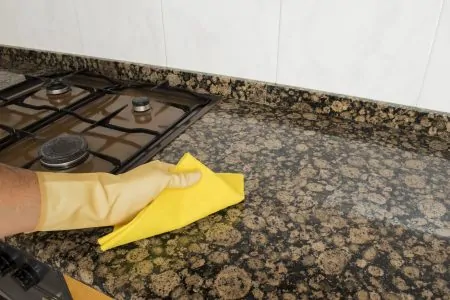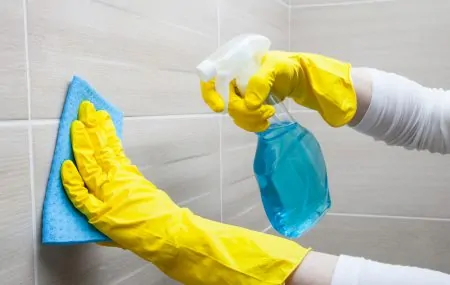Across more than 80% of the United States, people receive a hard water supply. Its mineral content provides health benefits, but it is less kind to your plumbing and appliances, which can suffer damage over time.
As with any home issue, the most reliable and inexpensive fix is to prevent it from happening in the first place. Before you go and buy a water softening kit, you might be able to save some money by learning how to tell if you even have hard water.
This article contains the most reliable methods to determine whether your water supply is hard or soft. We have also provided the most straightforward ways to soften your water and keep it from damaging your home.
Key Takeaways
- Determine if you have hard water using a home test, contacting your water supplier, or purchasing a test kit.
- Hard water contains minerals like calcium and magnesium, which can cause damage to plumbing and appliances.
- Methods to soften hard water include ion exchange, lime softening, chelation, and reverse osmosis.
- Temporary solutions for hard water issues can be boiling water, using ion exchange filters, water conditioners for laundry, treating with vinegar, or using water softeners.
Hard Water and Common Causes
Hard water contains minerals from calcium, magnesium, and, in some cases, ferrous iron. Hard water caused by calcium bicarbonate is temporary, but hard water caused by other substances is considered permanent (1).
Hard water is created when water flows over limestone, chalk, or gypsum, collecting them as it goes. These substances are mostly composed of calcium and magnesium, so they “harden” the water.
Although hard water is often referred to as “permanent”, this doesn’t mean your water hardness can’t be altered. It is called permanent because, unlike temporary hard water, you can’t remove the minerals by simply boiling the water. However, there are other ways to soften permanent hard water (2):
- Ion Exchange: This process exchanges calcium and magnesium ions for salt ions. The hard water is fed through a zeolite or resin for this exchange to occur. The process binds the unwanted ions to the surface while releasing the ions from the water softener salt.
- Lime Softening: Calcium hydroxide is added to water and raises its pH level, causing the calcium and magnesium to precipitate. Once the minerals are flushed out, acid is used to return the pH level to normal.
- Chelation: Chelating agents are organic compounds that connect metal ions to form something resembling a ring (3). These rings combine to form a filter that prevents your water and soap from creating thick films.
- Reverse Osmosis: Reverse osmosis uses high pressure to force water through a semipermeable membrane. The membrane filters out any ions and molecules that cause hard water.
How to Tell if You Have Hard Water
There are a few reliable ways to test the mineral content of your water supply. Some methods are quick, but will only give you a rough idea of how much your water is affected. If you want to know if you have hard water and how severe it is, there are more precise water test kits you can use.
Home Test
This makeshift test will help you determine whether or not your water supply is hard. To test for hard water at home, all you need is a clear plastic or glass bottle with a lid. If you don’t have a clear bottle, any clear container will do.
Once you have your clear bottle or container, follow these steps:
- Fill the container: Don’t pour water directly into the bottle or container. Instead, measure 12 ounces and then pour it in.
- Add soap: Add ten drops of soap into the water. It’s best to use liquid soap rather than detergent as many dishwashing detergents react negatively with hard water (4).
- Mix the contents: Tighten the lid and shake your bottle or container for a few seconds.
- Check for suds: If you see a lot of bubbles when you remove the cap or lid, your water is okay. If there are only a few bubbles, you need to take a few more steps.
- Gradually add more soap: Adding more soap in small amounts will help you measure the hardness of your water. The more soap you need to add to get more bubbles, the harder it is.
- Check for soap scum: If the water is cloudy and looks thick, your water is hard.
There are some other telltale signs of hard water:
- White scale in your sink, bathtub, and shower
- Stiff laundry
- Clothes with a strong smell even after washing
- Spots and blemishes on your drinking glasses
Contact Your Water Supplier
If you want a clear sense of how hard your water is, you can either contact your water supplier or purchase a test kit. In most cases, your supplier will be able to tell you the hardness of your water because they must closely monitor what it contains.
Hard Water Test Kit
Many companies that sell water softening products also offer a free water hardness test kit, so it’s worth asking before you buy one. Hard water test kits usually contain strips that you can use to determine the hardness of your water:
- Dip the strip: Dip a single strip into a glass of tap water. Only leave it in the water for a few seconds until the color starts to change.
- Remove from water: Once the strip stops changing color, remove it from the glass.
- Compare: Your kit will usually include a color-coded guide to tell you the hardness level, so compare the strip to it.
On most charts, the colors will range from green to deep red:
- Green: Soft water
- Yellow: Moderately hard water
- Deep red: Very hard water.
The colors on the chart might not match your strip perfectly, but you should get a good sense of where your water is in relation to it.
Hardness Titration Kit
If you are testing a pool or another large body of water, you should obtain a water hardness titration kit. This is the most accurate of all testing kits. Once you have one, follow these steps to use it:
- Fill a vial with water: The vials in these kits will have a mark on the side, which is your “fill line”.
- Add testing drops: Titration kits also contain a chemical that determines your water hardness. Add five drops to the water.
- Watch for color changes: The drops will remain blue if your water is pH balanced and will turn red if there are minerals in your water.
- Take note of the results: This test will tell you the exact GPG (grains per gallon) of your water. This will give you an accurate sense of how hard your water is.
Ask The Professionals
How to Fix Hard Water at Home
Here are some tried and tested ways to overcome hard water without calling in a professional:
- Boil your water: Boiling will only soften temporary hard water but it is very easy to do. This is ideal for softening a small volume of water for a specific task, but it isn’t a long-term solution.
- Ion exchange filter: These small filters fit onto your faucet and keep out any unwanted ions, thus softening your water.
- Use water conditioner for laundry: If you add water conditioner while cleaning laundry, it can trap some of the unwanted minerals and prevent hard water stains on clothing.
- Treat with vinegar: As vinegar is acidic, it is great for removing tough stains. This is also a short-term fix, especially if you need to remove a specific scale deposit.
- Use water softener: Water softener is a long-term solution. Although softeners can be expensive, they are worth it if hard water is negatively affecting your plumbing and appliances.
- Maintain your water softener: If you do use a water softener, make sure you maintain it properly to keep it working as intended.
FAQs
No More Hard Water
If you suspect that your water supply has high mineral content, take the time to test it before you spend money on a water softener. Even if you do have hard water, you should be able to overcome this issue without calling in a professional.
Hard water isn’t harmful. In fact, the minerals it contains are beneficial to our bodies. However, hard water can have a severe impact on your plumbing and home appliances. Take the time to consider whether or not your hard water is problematic enough to require softening.
If you want to soften your water without missing out on its mineral content, some modern water filters will add minerals back into your drinking water as it leaves your outlet. This means you can have the best of both worlds; water that is kinder to your plumbing and water that will boost your health.
